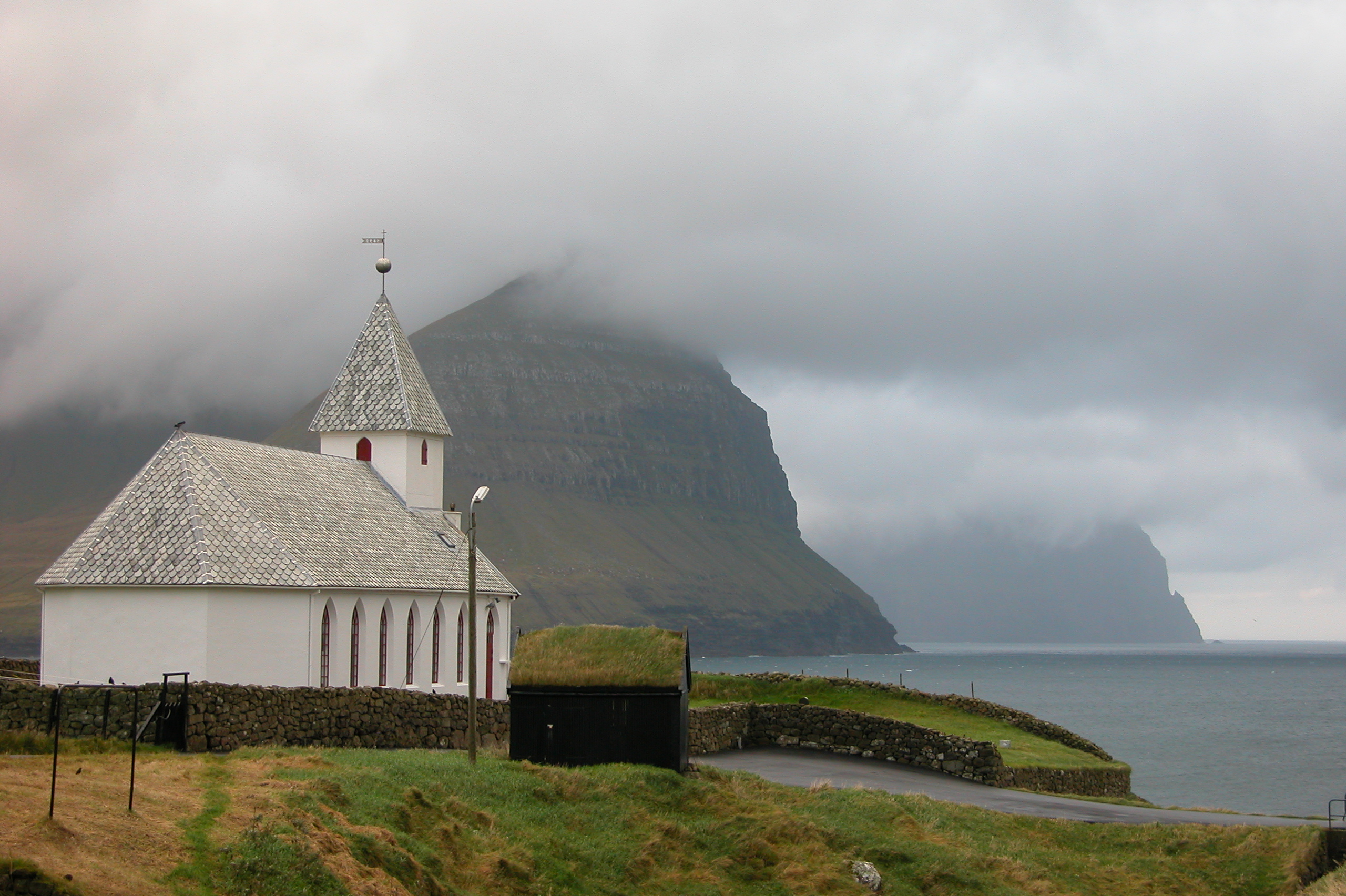Religion in the Faroe Islands on:
[Wikipedia]
[Google]
[Amazon]

 Religion in the Faroe Islands consists largely of the
Religion in the Faroe Islands consists largely of the

 Religion in the Faroe Islands consists largely of the
Religion in the Faroe Islands consists largely of the Lutheran
Lutheranism is one of the largest branches of Protestantism, identifying primarily with the theology of Martin Luther, the 16th-century German monk and Protestant Reformers, reformer whose efforts to reform the theology and practice of the Cathol ...
Church of the Faroe Islands, but also includes smaller Protestant groups such as the Open Brethren
The Open Brethren, sometimes called Christian Brethren, are a group of Evangelical Christian churches that arose in the late 1820s as part of the Assembly Movement within the Plymouth Brethren tradition. They originated in Ireland before spread ...
, as well as a few Catholics and adherents of non-Trinitarian
The Christian doctrine of the Trinity (, from 'threefold') is the central dogma concerning the nature of God in most Christian churches, which defines one God existing in three coequal, coeternal, consubstantial divine persons: God the Fa ...
religions, such as the Jehovah's Witnesses.
The Church of the Faroe Islands is the established religion since it became independent in 2007; previously the Church of Denmark
The Evangelical-Lutheran Church in Denmark or National Church, sometimes called the Church of Denmark ( da, Folkekirken, literally: "The People's Church" or unofficially da, Den danske folkekirke, literally: "The Danish People's Church"; kl, ...
held that role.
The Faroe Islands
The Faroe Islands ( ), or simply the Faroes ( fo, Føroyar ; da, Færøerne ), are a North Atlantic island group and an autonomous territory of the Kingdom of Denmark.
They are located north-northwest of Scotland, and about halfway bet ...
, located between Scotland and Iceland, are partly ruled by Denmark
)
, song = ( en, "King Christian stood by the lofty mast")
, song_type = National and royal anthem
, image_map = EU-Denmark.svg
, map_caption =
, subdivision_type = Sovereign state
, subdivision_name = Kingdom of Denmark
, establish ...
, and as such the people long practiced the same religion as the Danes although religious observance is nowadays more widespread and intense among the Faroese.
History
The ''Færeyinga saga
The Færeyinga saga (), the saga of the Faroe Islands, is the story of how the Faroe Islanders were converted to Christianity and became a part of Norway.
Summary
It was written in Iceland shortly after 1200. The author is unknown and the original ...
'' is often cited with respect to the early spread of Christendom
Christendom historically refers to the Christian states, Christian-majority countries and the countries in which Christianity dominates, prevails,SeMerriam-Webster.com : dictionary, "Christendom"/ref> or is culturally or historically intertwine ...
in the islands. The saga states that the king of Norway told Sigmund to go by ship to the Faroe Islands with orders from the King. Sigmund's orders were clear: he was supposed to make the 18 small islands Christian, which is what he did, according to the saga. This event is believed to have taken place around 1000, but the Faroese did not establish an organised congregation of the Catholic Church before around 1100, so there do appear to be some inconsistencies in the saga.
Originally belonging to Norway
Norway, officially the Kingdom of Norway, is a Nordic country in Northern Europe, the mainland territory of which comprises the western and northernmost portion of the Scandinavian Peninsula. The remote Arctic island of Jan Mayen and the ...
, Faroe fell under the jurisdiction of Denmark in 1523. The last Catholic Bishop of the Faroe Islands was Ámundur Ólavsson (Amund); he was replaced by the first Lutheran bishop, Jens Gregersøn Riber, in 1540.
Demographics
According to the 2011 Census, there were 33,018 Christians (95.44%), 23 Muslims (0.07%), 7 Hindus (0.02%), 66 Buddhists (0.19%), 12 Jews (0.03%), 13 Baháʼís (0.04%), 3 Sikhs (0.01%), 149 Others (0.43%), 85 with more than one belief (0.25%) and 1,397 with no religion (4.04%). The Catholic Church has around 270 adherents, representing 0.8% from Faroe population. There are also small groups ofSeventh-day Adventists
The Seventh-day Adventist Church is an Adventist Protestant Christian denomination which is distinguished by its observance of Saturday, the seventh day of the week in the Christian (Gregorian) and the Hebrew calendar, as the Sabbath, and i ...
, Jehovah's Witnesses, Ahmadi Muslims and followers of the Baháʼí Faith
The Baháʼí Faith is a religion founded in the 19th century that teaches the essential worth of all religions and the unity of all people. Established by Baháʼu'lláh in the 19th century, it initially developed in Iran and parts of the ...
in the country.
See also
* Church of the Faroe Islands (''Fólkakirkjan'') * Catholic Church in the Faroe IslandsReferences
{{reli-country-stub